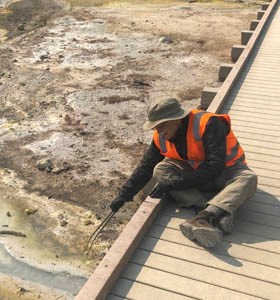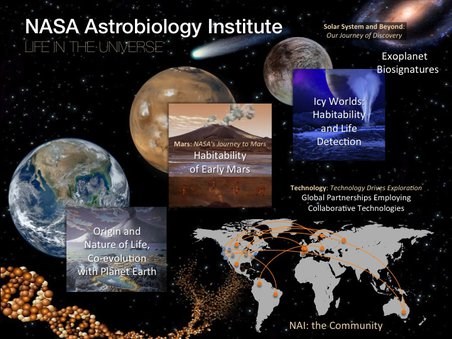
NASA Ames Research Center Some Microbes Like it HotLassen Volcanic National Park has numerous parallels with past volcanic activity on Mars and contains extreme environments that host microbial communities. Microbes in the hydrothermal features at Lassen thrive in extreme environments and may provide clues to understanding if microbial life could have ever existed in a similar hydrothermal system on Mars. The Spirit Rover found evidence of hydrothermal deposits near a volcano on Mars, which suggests there could have been hot springs on the red planet in the past. Astrobiology Student Intern ProgramResearch by scientists from NASA's Ames Research Center and astrobiology student interns contribute to an ever-growing collection of documentation on the diverse thermal features and microbial populations in the park. Student research is added to a database which includes thermal feature physical characteristics including pH, temperature, coordinates, digital documentation, and water analysis. It is anticipated that this material will provide a valuable resource for extreme environment analog research in support of NASA missions. 
What is Astrobiology?Astrobiology is the study of the origin, evolution, distribution, and future of life in the universe. This multidisciplinary field encompasses the search for habitable environments in our Solar System and habitable planets outside our Solar System, the search for evidence of prebiotic chemistry and life on Mars and other bodies in our Solar System, laboratory and field research into the origins and early evolution of life on Earth, and studies of the potential for life to adapt to challenges on Earth and in space.
In striving to answer these questions and improve understanding of biological, planetary, and cosmic phenomena and relationships among them, experts in astronomy and astrophysics, Earth and planetary sciences, microbiology and evolutionary biology, cosmochemistry, and other relevant disciplines are participating in astrobiology research and helping to advance the enterprise of space exploration. Learn more about on the NASA Astrobiology Institute webpage. |
Last updated: February 18, 2021
